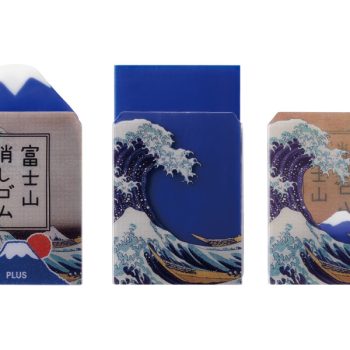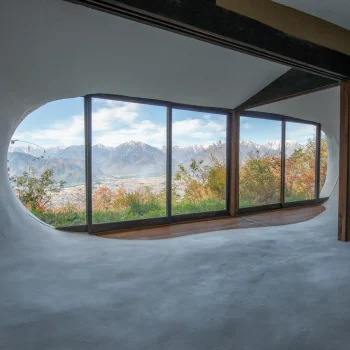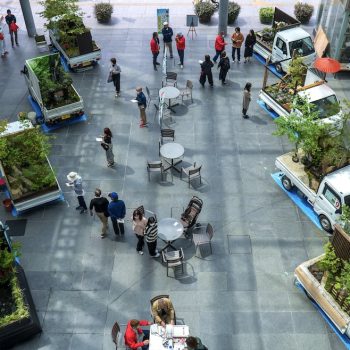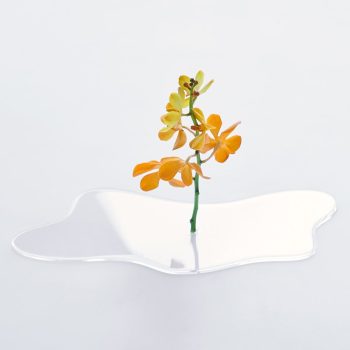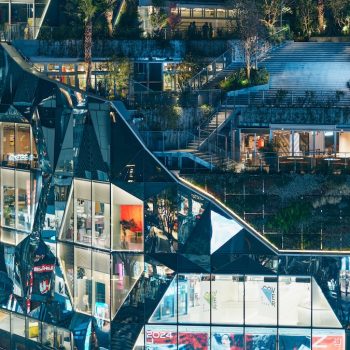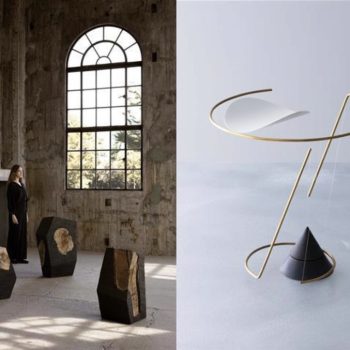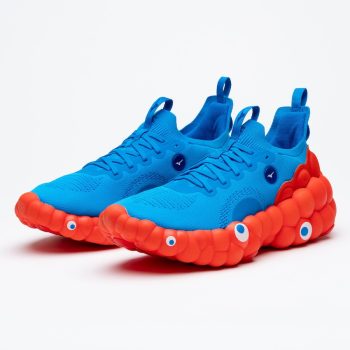In a country regularly rocked by natural disasters, safe havens are always on people’s minds. “If a tsunami approaches, or a earthquake rips the earth apart, where will we go?” That’s fabrics manufacturer Komatsu Seiren explaining their worries, and the reasoning behind commissioning architect Kengo Kuma to create fa-bo, their new office and laboratory space in Ishikawa Prefecture. Kuma was the perfect man for the job. After the great 2011 tsunami, the architect made an important realization that rerouted his attitude towards architecture.

Fa-bo reflects his newfound philosophy. The structure looks like a giant spider crafted an indestructible web, with the building at its epicenter. Hundreds of carbon fibers root the building to the spot. Bedecked in minimalistic concrete, this structure conveys strength and stability, key elements against such harsh weather occurrences like earthquakes. The building stands three floors in height, enclosing an exhibition space and crafts space for visitors, and topped with a neat roof garden to make the most of rainwater.

Carbon fibers and robust concrete ensure the building’s survival through even the most intense quakes.

While the building is primarily used as an office, it also offers spaces dedicated to exhibition, crafting, and even a lab.

Despite all that concrete, the interior is light and airy, courtesy of large windows and open stairwells.

As a sustainable and green material, carbon fiber is architecture’s lightweight future.

Carbon fiber is very strong, able to bear more weight than steel but it weighs a 90% less. To get into the nitty gritty details, Kuma utilized a thermoplastic carbon fiber composite called the CABKOMA Strand Rod.

Although it might seem like slabs of lush grass surround the plaza around the building, it is actually a new eco-friendly building material: porous spongy ceramic!

On overcast days, the supportive fibers cast linear shadows upon the windows.

The interior is brightly lit and charming little blue seats are scattered about the tables.

The diagram shows how the carbon fibers offer seismic support to the building during horizontal movement in an earthquake.







